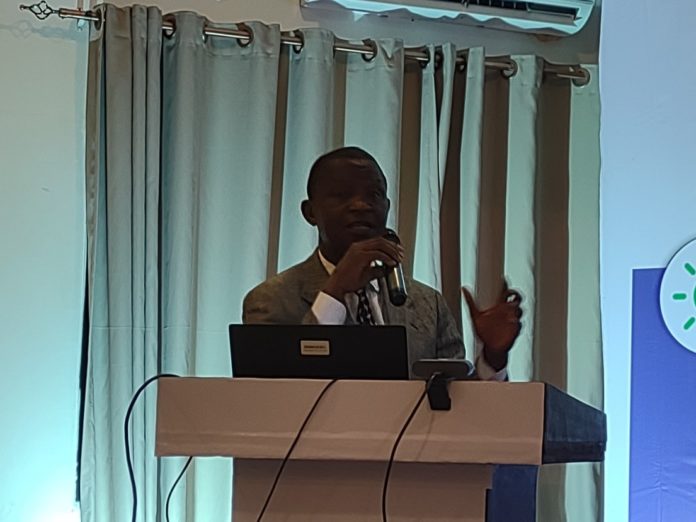By Hassan Gbassay Koroma
World Bank Sierra Leone’s 2023 Economic Update has revealed that the number of people facing acute food insecurity in Sierra Leone was surging, rising from 788,000 in January 2023 to 1,100,000 in August 2023.
According to Senior Agriculture Specialist at World Bank, Adetunji A. Oredipe, the number of chronically food-insecure people was also growing, both in absolute and relative terms.
He made the above revelation while making a presentation at the official launch of the World Bank Sierra Leone 2023 Economic Update at the Sierra Palm Hotel, Aberdeen, in Freetown with the theme ‘Enhancing Value Chains to Boost Food Security.’
He said the progress in cutting undernutrition is a key indicator of food insecurity and has stalled alongside unstable income growth and low progress in other key areas including healthcare, sanitation and other areas.
He said Sierra Leone’s food supply is dominated by cereals and other starchy staples, citing rice as the dominant cereal and cassava as the main root crop.
He stated that the average dietary energy supply appears adequate on aggregate, but trending downward and lies well below Africa and global levels.
He said the average protein supply was also low, falling, and well below Africa and global levels.
He sad Sierra Leone’s per capita production of several foods compared favourably with neighbouring West African countries and Sierra Leone has become increasingly dependent on food imports, especially for rice, its major food staple.
He presented that food access income levels and market systems are the primary determinant of access to food for most households, and that food is increasingly costly and adequate diets increasingly unaffordable.
He said child stunting and wasting rates are unacceptably high with poor utilization linked to poor access to health care and water and sanitation.
He said depending on the crop, domestic production appears to be subject to different policy-related price incentives and disincentives and all crops face high marketing costs.
The World Bank Specialist said rice productivity is low, especially compared to countries with comparably high levels of per capita consumption and despite low productivity,net returns for key crops are positive, but with varying distribution of returns across value chains.
He said food security in Sierra Leone will be achieved when economic growth has raised the poor above a meaningful poverty line, and when stabilization of the agri-food system prevents exogenous shocks from threatening their food intake.
He said in the face of high and increasingly volatile prices in global markets, rice self-sufficiency may seem like obvious policy objective, but reality is more complex.
He said experience from Asia indicates that rice self-sufficiency is technically feasible, through trade barriers and domestic price controls backed by food reserve stock management.
He said food sufficiency achievement is costly, both fiscally and in forgone economic opportunities and only to the extent that competitiveness can be achieved in a short amount of time.
If greater rice self-sufficiency is to be pursued, he said it must be driven by rapid and broad-based productivity growth in the rice value chain to boost its underlying competitiveness and climate resilience.
He said in Sierra Leone’s small open economy, macroeconomic stability built on fiscal and monetary discipline is essential to both food security in the short- to medium-term and growth and poverty reduction over the long-term.
He further noted that Sierra Leone’s fiscal constraints imply limited scope for public financing of market-oriented food security-enhancing investments and the private sector must be supported and empowered to undertake the required investments in Sierra.
The 2023 Sierra Leone Economic Update emphasizes that the government’s reform agenda for the agricultural sector needs to consist of policy shifts that bring about greater gains in productivity, including investments in export-oriented cash crops (cocoa, coffee, ginger, and palm seed) to generate foreign exchange, and investments in the production and marketing of rice to boost food security through rice self-sufficiency.





